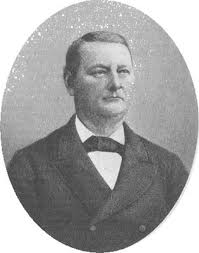Constitutional Problems Under Abraham Lincoln, Civil War
Date: 1861 - 1865
Region: North America
Subject: Political/Economic/Social Opinion
Medium: Print Journalism
Artist: John Merryman (1824 - 1881)
Confronting Bodies: Abraham Lincoln
Dates of Action: 1861-65
Location: United States of America
Description of Artwork: John Merryman spoke out in support of the Confederacy during the Civil War and was a strong advocate of the Southern cause.
The Incident: Margaret A. Blanchard, in her article Free Expression and Wartime: Lessons from the Past, Hopes for the Future, locates the Merryman arrest within President Lincoln's controversial suspending of the writ of habeas corpus, the constitutional province that protects American citizens from groundless arrest. "....As a wartime president, Lincoln immediately appreciated the importance of having a united country behind him. The difficulty was that residents of the North were significantly divided not only over how the war should be pursued but over whether it was necessary at all. Many so called Peace Democrats, individuals who desired an immediate end to the conflict, lived in the North. In addition, Northern States had strong pockets of Southern sympathizers who, if they couldn't stop the war, tried to aid the Confederate cause.....To maintain Union dominance, Lincoln sought to suppress disloyal sentiment by suspending the writ habeas corpus....Lincoln's action meant that individuals could be arrested and held without formal charges being lodged against them.....troublesome individuals were arrested for the revolutionary ideas that they were advocating-meaning separation from the Union and adherence to the Confederacy.... ...The leading opponent of the president's action was the Chief Justice of the United States, Roger B. Taney, sitting as circuit judge for Maryland. Taney had been called upon to rule in the case of John Merryman, a strong advocate of the Southern cause, who had not only spoken out for the confederacy but also had raised a company of soldiers to serve in its army and was connected with the burning of bridges in Maryland to keep Union soldiers from using them. Merryman's lawyers sought to have him released on the grounds that he was being illegally held without formal presentation of charges."
Results of Incident: "....Taney ordered Merryman released and denounced the president for undercutting a basic right of the American people. By suspending habeas corpus, the president could arrest and hold anyone indefinitely without trial- an action that Taney thought subverted the constitutional process. Lincoln ignored the 85- year old jurist's order. The case never reached the supreme Court; Merryman was eventually released and never heard from again..."
Source: Margaret A. Blanchard, Free Expression and Wartime: Lessons from the Past, Hopes for the Future, Journalism Quarterly, Vol. 69, No. 1 (Spring 1992), Pg. 5-17
